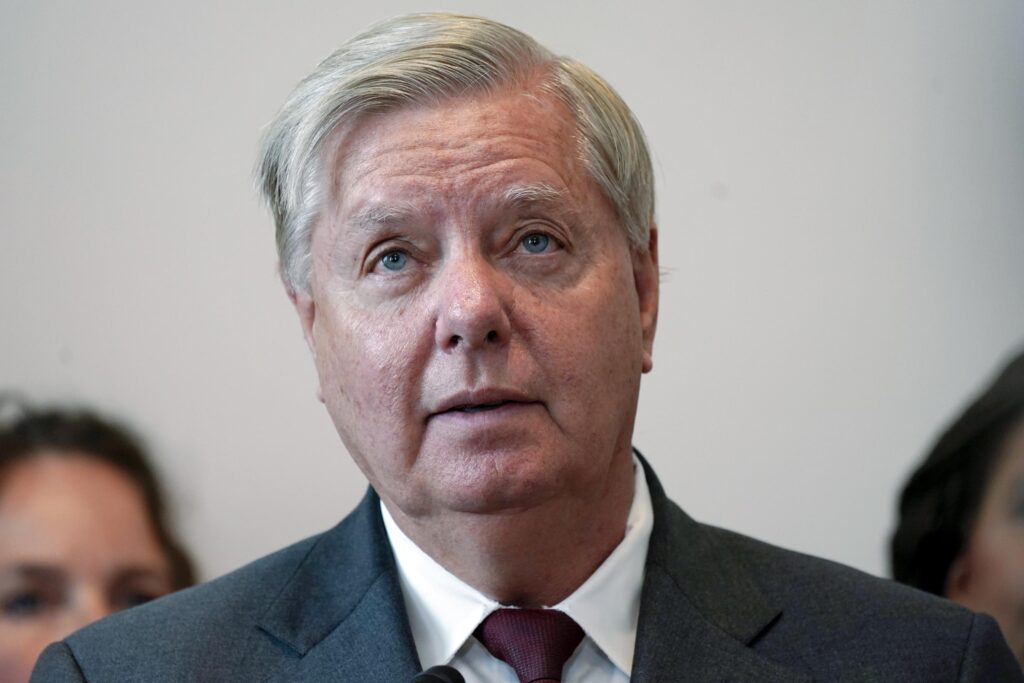Washington, D.C. Sen. Lindsey Graham’s testimony in a Georgia inquiry into potential unconstitutional influence in the 2020 election by then-President Donald Trump and his associates in the state was temporarily halted by the Supreme Court on Tuesday, but the temporary ban was later removed.
The court removed all legal barriers that may have prevented Graham from appearing before the special grand jury, which is now slated for November 17.
Graham might still object to some queries, the justices observed in an unsigned order, though.
The senator from South Carolina, a key Trump ally, has contended that the speech and debate section of the Constitution protects him from being compelled to testify.
The grand jury inquiry will unavoidably suffer from the delay caused by a stay, Fulton County District Attorney Fani Willis had warned the justices.
The lower courts had rejected Graham’s request for a break until the legal dispute is resolved.
The temporary hold that Justice Clarence Thomas had imposed on the testimony while he and his colleagues considered the arguments was lifted by Tuesday’s order.
Willis first subpoenaed Graham, a four-term senator who last won reelection in 2020. Shortly after a recording of a January 2021 phone discussion between Trump and Georgia Secretary of State Brad Raffensperger was made public, the district attorney began her inquiry.
Raffensperger could “find” the votes required to reverse his close loss to Democrat Joe Biden, according to Trump’s claim during the call.
Willis wants to question Graham about two phone calls he made to Raffensperger and his staff in the weeks after the election.
During those calls, Graham asked about “reexamining certain absentee ballots cast in Georgia in order to explore the possibility of a more favorable outcome for former President Donald Trump,” Willis wrote in a petition seeking to compel his testimony.
Additionally, she noted that Graham “made reference to concerns of widespread voter fraud in the Georgia election of November 2020, consistent with public statements made by known affiliates of the Trump Campaign.
In a hearing last month, she said that Graham could be able to shed light on the scope of any planned efforts to influence the outcomes.
Raffensperger claimed that he saw Graham’s inquiry on absentee ballots as an invitation to disregard legitimately submitted ballots. Graham called the interpretation “crazy” and rejected it. Graham has additionally maintained that the conversation was protected because he was getting information to help him decide whether to vote to certify the 2020 election and whether to pass future legislation.
Willis has already been informed by lower courts that she “may not enquire about any investigative activities,” which is shielded by the Constitution.
The justices stated in their opinion on Tuesday that since the courts “have concluded that Senator Graham may not be questioned about such actions,” their intervention is not required.
If disagreements develop regarding the questioning conducted in front of the grand jury, he may also go back to federal court, the judges wrote.
Thomas first handled Graham’s appeal, but as is typical, he included the rest of the court in Tuesday’s decision.
Despite the involvement of the justice’s wife, Virginia “Ginni” Thomas, in efforts to contest Trump’s defeat in 2020, Thomas did not withdraw from the case and has in fact taken part in all election-related disputes filed before the court by Trump and his friends.
Ginni Thomas, a pro-Trump activist and ardent supporter, was present at the Jan.
6 “Stop the Steal” demonstration on the Ellipse, and in the weeks that followed the election, they wrote to then-White House head of staff Mark Meadows urging him to seek to annul President Joe Biden’s victory and keep Trump in office.
In the weeks following the election, she also contacted politicians in Arizona and Wisconsin, but there is no proof that she contacted Georgian officials.
The House committee looking into the January incident recently questioned Thomas.
Despite the fact that several federal and local agencies, numerous courts, prominent former campaign staffers, and even Trump’s own attorney general have all stated that there is no proof of widespread fraud, she continued to stand by the false allegation that the 2020 election was rigged.
The Supreme Court permits Graham to testify in Georgia

